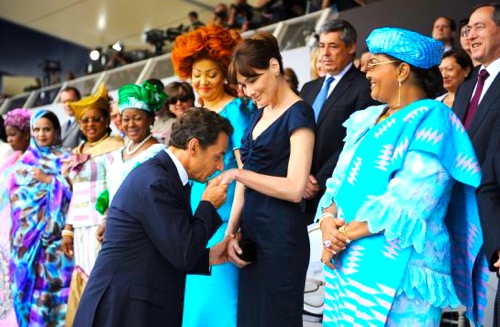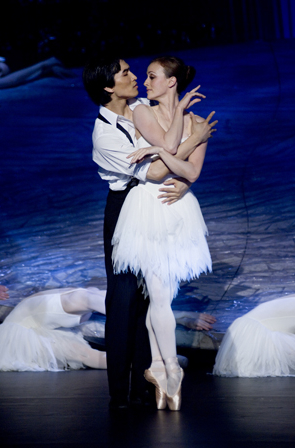
By Jason Apuzzo. • There’s a new trailer out for The Social Network, and it looks pretty good – not great, but good. Fincher seems to be giving this film a What Makes Sammy Run? vibe, and you certainly get a feel for Facebook’s icky origins (both morally and legally) in the dorm rooms of Harvard. Nice work. This will clearly help the buzz on the film, although elite-college-based movies like this somehow never get the feel for what a Harvard, Yale or Stanford are actually like (hint: nobody wears those stupid secret society jackets). Btw, I love the choral version of Radiohead’s “Creep” that plays over the visuals. Mark Zuckerberg must really be squirming right about now.
• Despicable Me is already moving into profitability, because it cost so little to make. And this is another reason why Pixar now has serious competition, as the once-low cost of Pixar’s projects rises and rises.
• Movie futures trading has now officially been banned, and my hopes of a quick-and-easy fortune have crumbled! I had money down on The Hobbit.
• Winter’s Bone star Jennifer Lawrence has been cast as Mystique in X-Men: First Class, making the transition from indie to franchise fare. [See Patricia Ducey’s LFM review of Winter’s Bone here.] She’s also soon to star in a movie featuring Mel Gibson as a man obsessed with a sock puppet. So she’s making some interesting career choices.
• … and speaking of which, Angelina Jolie is headed to Comic-Con to promote Salt, after it was revealed today that she was given $20 million to do that film. Jolie’s certainly found a way to beat the boys at their own game by playing action heroes … but is there a trace of warmth or femininity left in her?
• Libertas reader A.O. Scott (chief New York Times film critic) meticulously takes apart Christopher Nolan and Inception today. Money quote:
The accomplishments of “Inception” are mainly technical, which is faint praise only if you insist on expecting something more from commercial entertainment. That audiences do — and should — expect more is partly, I suspect, what has inspired some of the feverish early notices hailing “Inception” as a masterpiece, just as the desire for a certifiably great superhero movie led to the wild overrating of “The Dark Knight.” In both cases Mr. Nolan’s virtuosity as a conjurer of brilliant scenes and stunning set pieces, along with his ability to invest grandeur and novelty into conventional themes, have fostered the illusion that he is some kind of visionary.
But though there is a lot to see in “Inception,” there is nothing that counts as genuine vision. Mr. Nolan’s idea of the mind is too literal, too logical, too rule-bound to allow the full measure of madness — the risk of real confusion, of delirium, of ineffable ambiguity — that this subject requires. The unconscious, as Freud (and Hitchcock, and a lot of other great filmmakers) knew, is a supremely unruly place, a maze of inadmissible desires, scrambled secrets, jokes and fears. If Mr. Nolan can’t quite reach this place, that may be because his access is blocked by the very medium he deploys with such skill.
It’s nice that the adults are finally weighing in on this film, given all the hype and nonsense we’ve had to put up with to this point. I’ll add my own brief remarks to all this tomorrow.

• Two things happened yesterday that I neglected to mention: France’s Bastille Day, and also Harrison Ford turned 68. What this means is that Harrison is older than the current incarnation of the French Republic, but still – in my opinion – young enough to play Indiana Jones. By the way, check out this picture of Carla Bruni and her husband from yesterday. The French guys really know how to handle things, non?
• Mel Gibson has been back on the set lately filming his friend Jodie Foster’s film The Beaver, and I cannot even imagine how awkward that must be. Ouch. “Quiet on the set!”
• Beavis and Butt-head are apparently returning to MTV. I actually thought this show was pretty good in its day – in limited doses. Its purpose was to depict slacker morons as … slacker morons, instead of the pseudo-venerable/jocular wise men they’re regarded as today (e.g., why does anybody pay attention to Kevin Smith?).

• AND IN TODAY’S MOST IMPORTANT NEWS … the crazy baby sitter twins from Planet Terror are apparently back for more action in Robert Rodriguez’s Machete, and now I’m slightly more likely to see this film. I loved their schtick in the first film, and maybe they’ll make me forget Rodriguez’s politics in this new one.
And that’s what’s happening today in the wonderful world of Hollywood.
Posted on July 15th, 2010 at 5:18pm.


